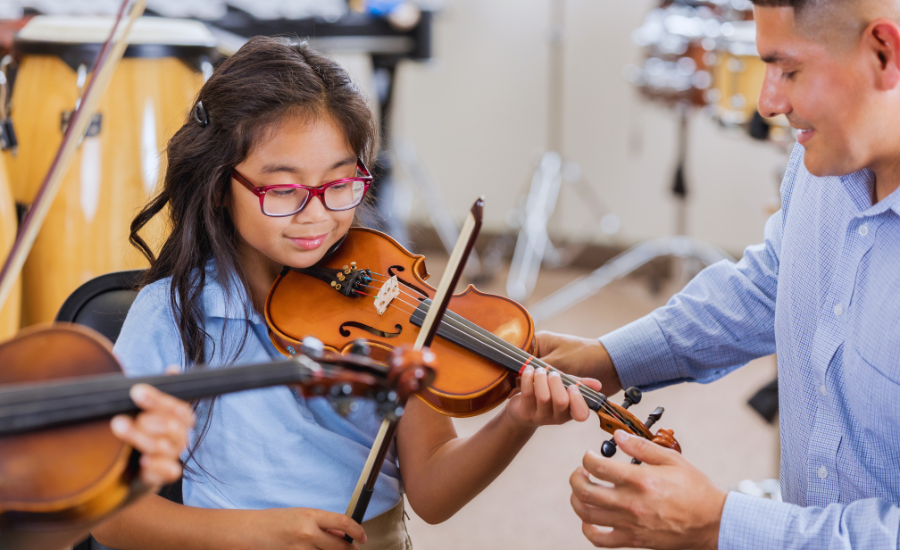1. Collaboration and Teamwork: Music education often involves participating in ensembles, bands, orchestras, or choirs. Working together with others towards a common goal fosters collaboration and teamwork. Students learn how to listen to and blend with others, follow a conductor or leader, and contribute to a harmonious and unified performance.
2. Communication Skills: Music requires effective communication between Musicians. Whether it’s through eye contact, body language, or verbal cues, musicians learn to communicate and coordinate their playing. They also develop active listening skills, as they must listen to others while playing their own instrument or singing.
3. Empathy and Sensitivity: Playing music involves understanding and empathizing with the emotions and intentions conveyed in the music. Musicians learn to interpret and express emotions through their playing, and they develop sensitivity towards the emotions conveyed by others. This cultivates empathy and emotional intelligence, which are essential for building positive relationships.
4. Respect and Appreciation for Differences: Music encompasses a wide range of styles, genres, and cultural traditions. Learning music exposes students to diverse musical experiences and perspectives. By studying and appreciating different musical styles and traditions, students develop respect for cultural differences and learn to embrace diversity.
5. Peer Feedback and Support: In music classes or ensembles, students often provide feedback and support to one another. They learn to give constructive criticism, offer encouragement, and help each other improve their musical skills. This fosters a supportive and nurturing environment where students learn from each other and grow together.
6. Performance Opportunities: Music education provides opportunities for students to perform in front of others, whether it’s in school concerts, recitals, or community events. Performing in front of an audience helps students overcome stage fright, build confidence, and develop public speaking skills. It also fosters a sense of community and connection with the audience.
7. Social Bonds and Friendships: Music classes and ensembles provide a social setting where students with similar interests can connect and form friendships. Shared experiences, rehearsals, and performances create a sense of camaraderie and belonging. Students often build lifelong friendships through their shared love for music. 8. Cultural Awareness and Inclusion: Music is a universal language that transcends cultural boundaries. By studying music from different cultures, students gain a deeper understanding and appreciation for diverse traditions and perspectives. This promotes cultural awareness, inclusion, and respect for all individuals. Overall, learning music encourages social interaction, communication, empathy, and collaboration.
8. Cultural Awareness and Inclusion: Music is a universal language that transcends cultural boundaries. By studying music from different cultures, students gain a deeper understanding and appreciation for diverse traditions and perspectives. This promotes cultural awareness, inclusion, and respect for all individuals.
Overall, learning music encourages social interaction, communication, empathy, and collaboration. It provides a platform for students to connect with others, develop important social skills, and build meaningful relationships.





